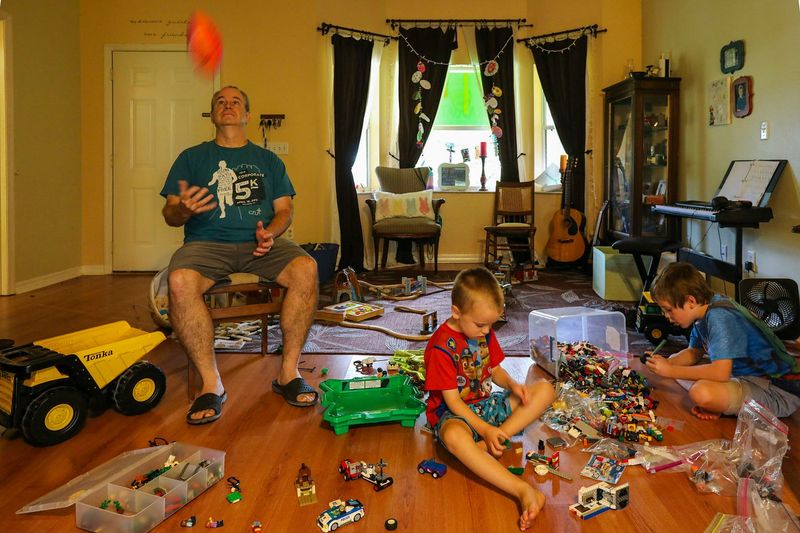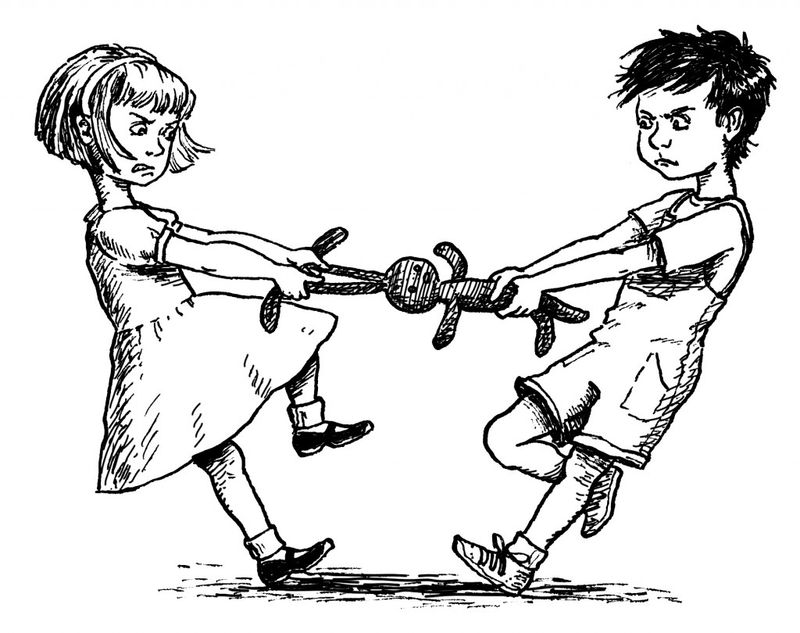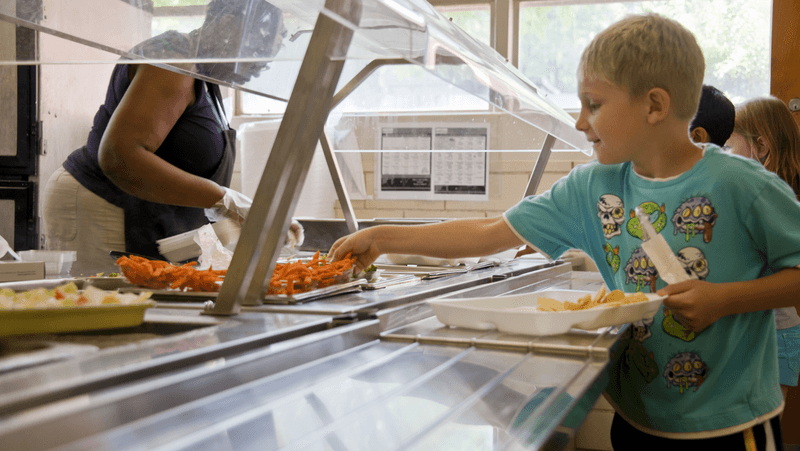Let’s skip the pleasantries and get real: most working-class folks grew up with limits. There was always a line you didn’t cross—a lesson you had to learn, sometimes the hard way. So it’s not hard to spot a kid who never heard the word "no" or had to wait for something they wanted.
It’s not about judgment. It’s about living in a world where you had to hustle, share, and sometimes swallow disappointment. You can see the difference in a heartbeat. These aren’t just behaviors—they’re tells, like a poker player who can’t hide his hand.
Here are sixteen things working-class people notice instantly about spoiled children—each one a little window into a life where reality has always been padded.
1. Entitlement in Every Step
You know the look. It’s in the way they walk into a room like the world is their personal stage. Entitlement isn’t just visible—it radiates from these kids, like an invisible badge.
Maybe you watched them interrupt adults mid-sentence, not out of excitement but because they truly believe their words matter more. Sometimes, you catch it in their eyes when a parent asks them to help and they act like they’re being punished.
It’s not confidence; it’s assumption. There’s a difference, and if you grew up where nothing was just handed over, you learned it early. Entitlement is hard to unsee once you’ve lived on the other side of it. It’s not just about “wanting things”—it’s acting as if “having things” is the bare minimum.
2. No Clue About Boundaries
Ever see a kid grab something right out of another’s hands, with zero hesitation? That’s more than just a bad day—that’s a missing lesson about boundaries. For working-class families, respecting others’ space was non-negotiable.
Kids who haven’t been checked on this act like every toy, snack, or conversation is rightfully theirs. They sit in a chair someone just stood up from, shout over quieter voices, and crowd into personal space with no awareness.
You don’t need a parenting book to spot it. If you were taught to ask before touching anything, seeing someone skip that step stings. It’s like watching manners dissolve in real time, and it can make you want to scoop your own kid closer, just to remind them of the difference.
3. Tantrums Over Small Disappointments
It’s not just the volume—it’s the drama. Spoiled children can turn “no” into a full-blown event, with tears, stomping, maybe even some rolling on the ground.
You might remember being told “that’s enough” with a voice that meant business. But these kids seem shocked anyone would say no. Their disappointment feels world-ending, and for the people watching, it’s painfully clear this isn’t their first public meltdown.
You can’t help but recall the times you wanted something and had to hear “maybe next month.” The contrast is sharp: some kids learn to wait, others fall apart if the answer isn’t instant and sweet. It’s not about being harsh—it’s about surviving in a world that doesn’t always care if you’re upset.
4. Ignoring Chores and Responsibility
Picture this: the house is a mess, one parent is juggling dinner and laundry, and the kid? Feet up, scrolling, not a care in the world. Chores are a foreign concept.
If you came from a place where everyone chipped in, watching this feels almost surreal. For spoiled kids, cleaning up after themselves is negotiable—maybe even optional. They don’t see mess; they see a stage set for their comfort.
Sometimes, it’s not even laziness—it’s just not on their radar. No one ever made them care about pitching in. For working-class people, there’s something sacred about pulling your weight. It’s about respect, not just tidiness.
5. Talking Down to Service Workers
You wince when you see it—a kid, barely old enough to order off the adult menu, snapping at a server like they’re invisible. It’s not just embarrassing; it’s revealing.
Somewhere along the line, they learned that people who serve you aren’t people worth respecting. Maybe their parents let it slide, or maybe they do it themselves. Either way, it’s a lesson you never forgot: kindness costs nothing.
It’s never just about the words, but the tone—the assumption that some folks are there to serve. For people who grew up on tips and second jobs, this is the kind of thing you never let your own kid get away with. You know what it feels like to be on the other end of that.
6. Everything Must Be Immediate
Do you remember saving up for something, counting coins, and waiting weeks? Spoiled kids don’t—instant gratification is almost a birthright.
The urgency in their demands is unmistakable. If they want it, it should already be in their hands. Waiting doesn’t just test their patience; it’s almost offensive.
Sometimes, you catch envy flickering in their eyes when another kid gets attention first. For working-class people, the lesson was always: some things are worth the wait. Patience builds character; entitlement just builds impatience.
7. Zero Interest in Sharing
Some kids clutch what’s theirs like a dragon with gold. Sharing isn’t even on the table—it’s their stuff, period.
Working-class families often had less to give, so sharing wasn’t optional. It was survival. Watching a child refuse to split a snack, or even let someone else touch their things, feels oddly personal.
You remember splitting the last piece of cake, counting out jellybeans to make it fair. The refusal to share says more than selfishness—it’s a story about never having to think about someone else, not even for a second.
8. Rules Are for Other People
Ever see a kid waltz to the front of the line, like rules are just suggestions for other people? That’s a flashing neon sign of spoiled behavior.
Maybe they talk back to teachers, ignore curfew, or argue about every limit set. It’s not that they’re brave—they’re just unused to consequences. For you, rules were fences meant to keep everyone safe.
Sometimes, it’s almost comical how bold they are. But mostly, it just makes you grateful for every tough lesson that taught you respect for boundaries—and for the people who enforce them.
9. Lack of Gratitude
It’s the birthday party moment: a child opens a gift and barely looks up. No thank you, no excitement, just a shrug and maybe a mutter about what they actually wanted instead.
Gratitude isn’t just a word—it’s an energy. If you grew up knowing the value of a gift, any gift, this kind of indifference lands heavy. Someone spent money and time, but all they see is what’s missing.
You feel it—a tiny pang of sadness, mixed with frustration. Gratitude is the currency of connection, and when it’s missing, it’s like a chill in the air no cake can fix.
10. Always the Center of Attention
Some kids have a way of making every gathering about them. They talk over adults, dominate group games, and act like the spotlight belongs to them by default.
There’s nothing wrong with confidence, but this is something else. It’s the certainty that everyone’s here for their show, and everyone else is just the audience. If you had to wait your turn to speak at the table, it’s hard not to notice.
Sometimes, the parents look proud; sometimes, apologetic. Either way, you see the difference between wanting to be seen and needing to be the only one seen. It’s a big, loud gap.
11. Blaming Others for Mistakes
When things go wrong, spoiled kids reach for the nearest scapegoat. Nothing is ever their fault—not the spilled juice, not the broken toy, not even the bad grade.
Maybe you had to own up, even if it hurt. Watching a kid blame friends, siblings, or even adults for their messes is a masterclass in avoidance. For working-class families, accountability was survival. If you didn’t admit your mistakes, you didn’t learn.
You see the pattern: deflection, denial, and distraction. The world feels safer when someone else carries the blame, but it’s a lonely way to live. Responsibility, once learned, is freedom. Even if sometimes it stings.
12. Disdain for Rules at Home
The sighs, the eye rolls, the dramatic “why do I have to?”—the performance is familiar. But for some kids, it’s not just drama; it’s true resentment of any structure at home.
If you saw house rules as just part of life, this kind of push-back seems theatrical. Parents negotiate every bedtime, every chore, every basic expectation. The idea that rules exist for a reason is almost foreign.
You shake your head but also feel a little sorry. Boundaries don’t just keep order—they give kids a sense of safety. Without them, everything feels up for debate, and no one’s really in charge (except maybe the kid).
13. No Respect for Elderly
There’s a certain heartbreak in watching a kid breeze past an elderly neighbor, never offering a hand. Respect for elders wasn’t optional in working-class homes—it was as basic as brushing your teeth.
Spoiled children often see older people as invisible, or worse, an inconvenience. Maybe they groan at grandpa’s stories, ignore grandma’s requests, or just never think to say thank you. It’s not just rudeness—it’s a missing link in their sense of community.
You remember helping carry bags, opening doors, listening to the same tales. Those moments built character. Their absence is a kind of loss that ripples through a whole family.
14. Unrealistic Expectations About Money
You hear it in their wish lists—$200 sneakers, the latest phone, nothing secondhand. For some kids, money grows on trees or, more accurately, appears on demand.
If you ever counted coins to buy lunch, this attitude feels almost otherworldly. Spoiled children don’t connect purchases with work, effort, or sacrifice. Money is an endless stream, not an earned resource.
You want to pull them aside, tell them about saving for months, about birthdays where socks were a win. But you know—some lessons need to be lived, not just told. The difference is as clear as the price tag.
15. Overreacting to Routine Limits
Routine boundaries—bedtimes, screen time limits, curfews—set some kids off like fireworks. The resistance is fierce, sometimes theatrical, and always exhausting for everyone involved.
Working-class families usually treat routine as a safety net. When a kid treats it as a threat, you know there’s been a pattern. Limits aren’t the enemy; they’re what keep life from spinning out.
You see it in the frustration on the parent’s face, the exasperated sighs. Every refusal to accept a limit is another mile between childhood and growing up. Some lessons repeat until they’re actually learned.
16. No Awareness of Others’ Feelings
There’s a sharpness in the way spoiled kids talk about what they have, oblivious to who doesn’t. They miss the hurt in another child’s eyes, the pause in a friend’s voice.
Empathy isn’t just knowing how someone feels—it’s noticing, even when it’s inconvenient. If you learned to read a room, or to quiet down when someone was sad, seeing a kid bulldoze right over others’ emotions is hard to watch.
It’s not always malice. Sometimes, no one pointed it out. But empathy is a muscle, and if you never flex it, you never build it. You can spot the difference a mile away.

















